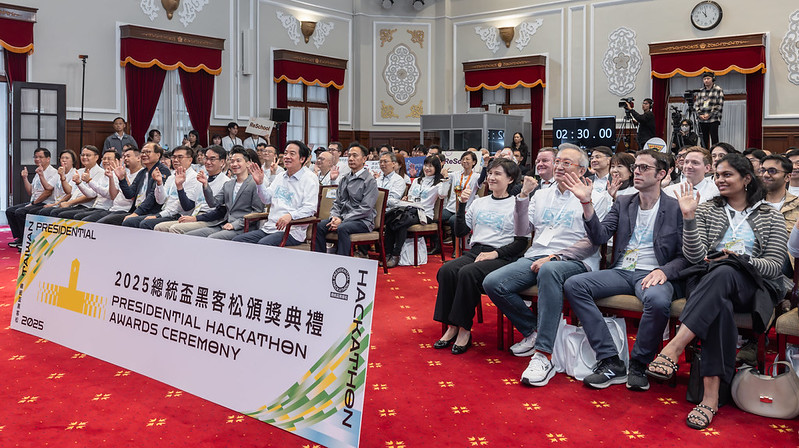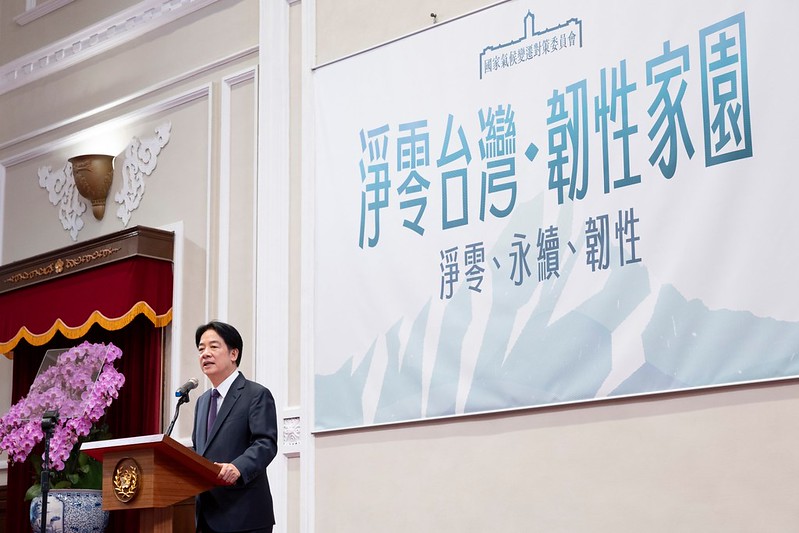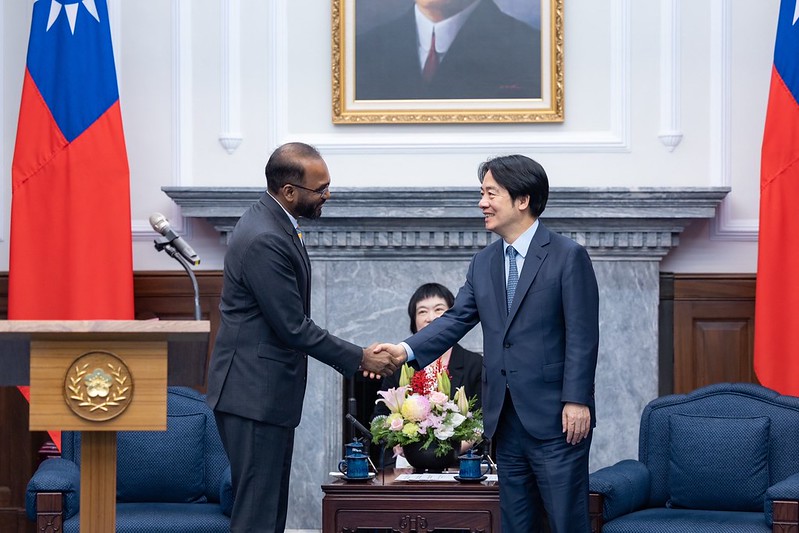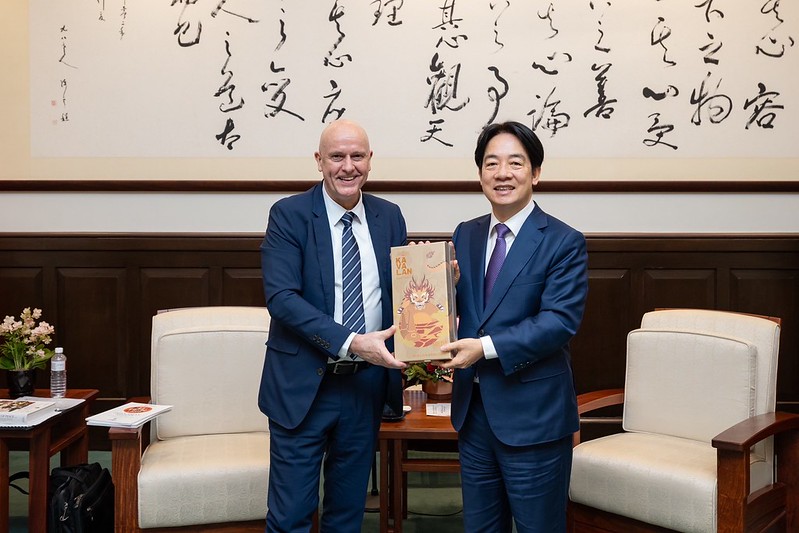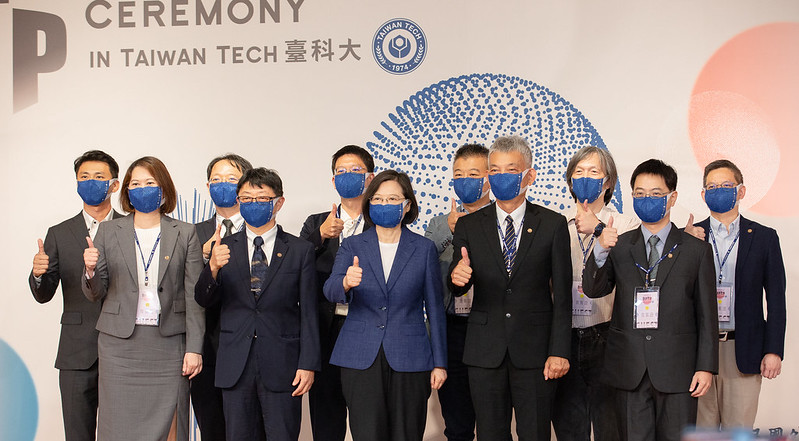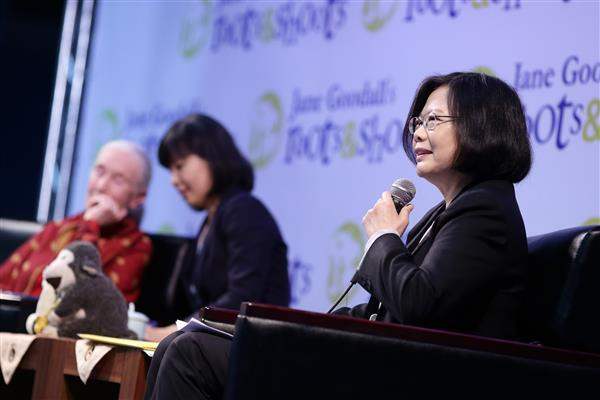News & activities
 News releases
News releases
On the evening of November 22, President Tsai Ing-wen attended "The Power of Young People to Change the World: An Event with Dr. Jane Goodall." In addition to sharing their life experiences and their hopes for the younger generation, the president and Dr. Goodall also praised young people for their willingness to take part in the making of public policies regarding ecological preservation and other fields.
In remarks, President Tsai said that in her youth she read about Dr. Goodall and saw her photographs in the National Geographic magazine. Noting that Dr. Goodall dreamed from a very young age of going to Africa to study animals, the president expressed deep respect for her unremitting devotion to conservation work for nearly 60 years.
The president mentioned that as a young girl she was rather introverted, and even wanted to become an archeologist because she felt dealing with people was a bit taxing. But growing up she often had animals to keep her company, and she believes that animals can indeed interact and communicate with humans.
Commenting on the achievements of the Jane Goodall Institute, Taiwan , President Tsai pointed out that the Institute has over 800 groups working on various "Roots and Shoots" programs in which students, teachers, and parents work together to carry out conservation and education projects. In addition, the Institute collaborated with Taiwan's Forestry Bureau to complete greenification projects at 156 schools throughout the country so that students can have opportunities to come in contact with plant life and develop a caring attitude toward forests. As long as we are willing, said the president, every single person has the ability to change the environment in positive ways.
President Tsai also pointed out that the times have changed quite a bit since Dr. Goodall spent time in the forests of East Africa in the 1960s. The concept of conservation is now more widely embraced throughout the world, commitment to the environment is stronger, and exploration into new energy resources has yielded many concrete achievements. These changes are the result of actions, including Dr. Goodall's globetrotting promotion of education and outreach, as well as efforts by people around the globe to achieve solidarity and cooperation. The president stated her belief that we must all work together to protect these achievements and to continue striving for a better world.
Commenting on the government's environmental protection policies, President Tsai said that in order to make up for damage to the land and ecosystems that resulted from Taiwan's pursuit of economic development in an earlier time, the government has established a Central Mountain Range Conservation Corridor. It is also working to protect wetland ecosystems in the coastal region of southwestern Taiwan, and is carrying out conservation projects in river, mountain, and coastal environments throughout the country. Meanwhile, the government has adopted a national spatial plan to undertake a comprehensive review of spatial conservation and recovery efforts.
President Tsai further stated that Taiwan will work to encourage environmentally friendly farming practices and promote diverse and sustainable economic, social, and ecological development in rural areas. In this effort, she said, the government will make reference to the Satoyama Initiative adopted by the United Nations in 2010. In fact, ecological diversity is Taiwan's most important asset. Further implementation of conservation and environmental protection, moreover, is the shared responsibility of all generations in Taiwan, and is an obligation that we must fulfill as a citizen of the world. By doing so, she said, hopefully we can help Taiwan's ravaged land recover from the harm it has suffered.
Addressing the students in the audience, President Tsai and Dr. Goodall spoke about their life experiences and what they have learned. In particular, they talked about their interactions with animals, and what they've done to conserve the environment and put their environmental preservation ideas into practice.
And finally, in summing up her remarks, President Tsai offered a quote from Dr. Goodall herself: "Only if we understand can we care. Only if we care will we help. Only if we help shall all be saved." The president urged her young listeners to care first of all about their immediate surroundings, to address small problems, and to make use of their abilities and energies, "even if you are only acting on a very minor observation or thought." Once you've acted, she said, you may find you have the power to change the world.
President Tsai pointed out that Dr. Goodall's life experiences provide a very positive role model. Regardless of your occupation—be you a zoologist, engineer, or anything else—"if you have ideas and enthusiasm, if you stick to your beliefs and act upon them, the world will change because of you," the president emphasized.
The entire dialogue between President Tsai and Dr. Goodall can be viewed on YouTube (https://goo.gl/dtR4PJ).
